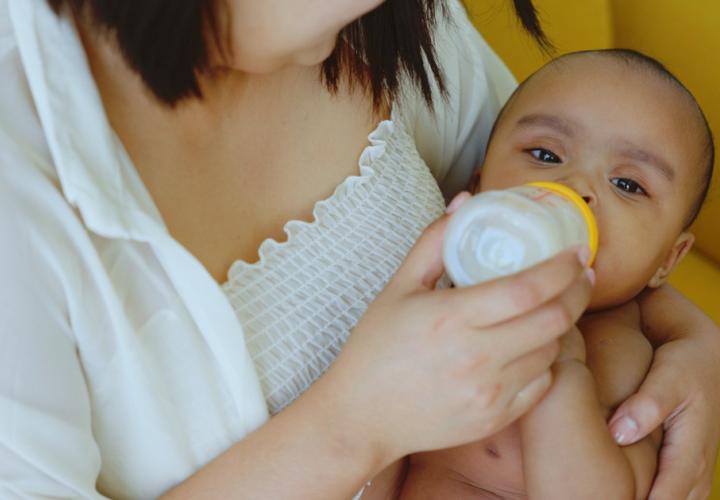If you can’t find formula anywhere, try:
- Calling your Ob/Gyn or pediatrician. They may be able to get you a sample from local formula representatives or charities.
- Contacting your local WIC office for other places to check for formula.
- Asking pharmacies in your area to check what is in stock before you head out.
- Checking smaller, private stores, which may not be out of supply before the larger stores are.
- Looking online—and buying a 10-day to 2-week supply—if you can afford it. Take care to buy from reputable pharmacies and distributors rather than “auction” sites. Pediatricians do not recommend ordering formula from overseas, as it’s not FDA regulated.
- Browsing through social media groups dedicated to infant feeding—connecting with others for resources can help.
- Calling up a friend and asking to borrow some if they have any extra, unopened formula. Check the expiration date (as always) and triple-check the lot numbers if you are using an Abbott brand.
You may need to switch to a different brand or type, and always check the mixing instructions first.
The majority of babies can tolerate a mix of formulas, but if your baby has a known allergy or other medical condition that requires specialized formula (like EleCare which can’t be substituted), speak with your pediatrician.
Generally, it’s safe to use a generic store brand. Many labels will state which brands you can compare to. Being flexible can be helpful during this shortage challenge.
If available, consider using ready-to-feed formula if you haven’t already.
What if I’m prescribed a higher-calorie formula recipe by my pediatrician?
Check with your pediatrician about the new recipe—they will be able to provide accurate and safe mixing instructions. Each formula may have different guidelines.
Do not, under any circumstances, try to make your own baby formula.
Google is full of alternative recipes with all-natural ingredients from so-called “experts,” but do not do this. Homemade infant formulas:
- Are not safe.
- Do not meet babies’ nutritional needs.
- Can be harmful or even fatal.
Read more about the risks of homemade formula from the American Academy of Pediatrics.
Important reminders:
- Avoid ordering formula from overseas as the FDA cannot guarantee its safety.
- Do not dilute your current formula with water to “prolong” your supply. Watering down baby formula is dangerous and can cause harmful or fatal consequences. As always, follow the instructions on the package for proper mixing.
